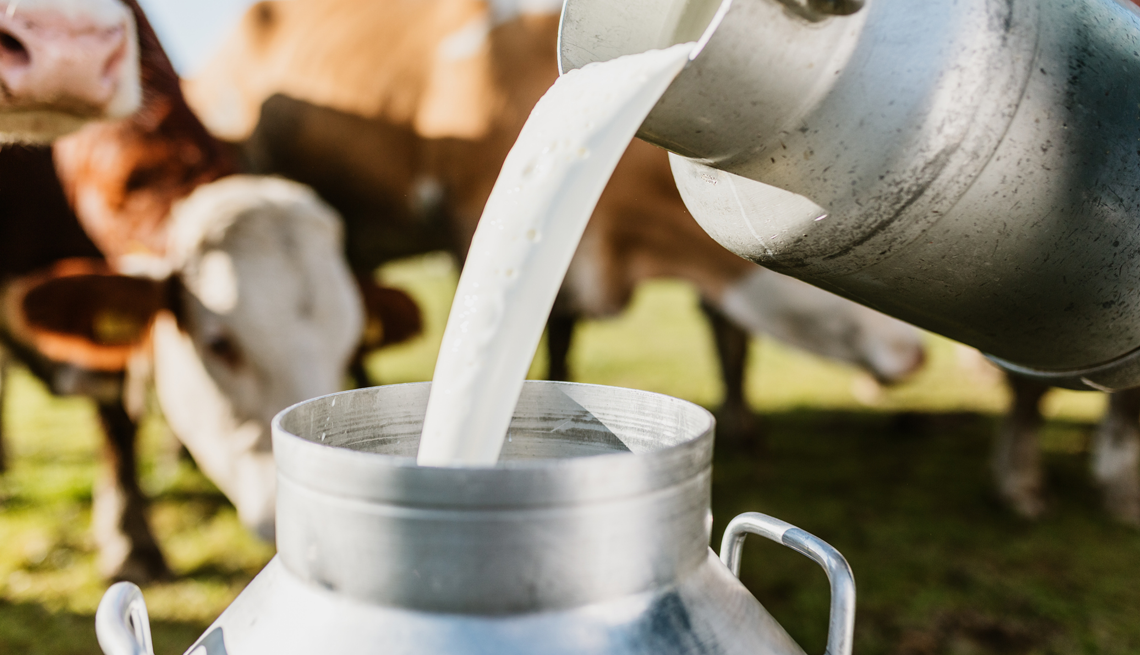
Are your groceries safe from bird flu?
- Select a language for the TTS:
- UK English Female
- UK English Male
- US English Female
- US English Male
- Australian Female
- Australian Male
- Language selected: (auto detect) - EN
Play all audios:

Bird flu outbreaks at U.S. dairy and poultry farms are prompting questions and concerns over the safety of our food supply. In the last year, more than 950 dairy herds have been affected by
bird flu, the latest data from the Centers for Disease Control and Prevention (CDC) shows, and more than 156 million birds have been hit with the virus, many of them at commercial farms.
Here’s what we know so far about bird flu’s effect on milk, cheese, eggs, poultry and more. IS IT SAFE TO DRINK MILK? There’s little concern about the safety or availability of milk
products in the U.S., health experts say. A big reason: Nearly all milk sold in the U.S. is pasteurized. This heat treatment process — which is required for any milk sold across state lines
— is “very likely” to kill viruses, like bird flu, federal officials say. “However the process is not expected to remove the presence of viral particles,” according to the Food and Drug
Administration (FDA), which explains why fragments of inactivated virus have been found in samples of pasteurized milk. The risk, experts say, is with raw milk. Health officials have long
urged people to avoid raw milk and are reminding consumers of this recommendation in light of the bird flu outbreak. Raw milk and raw milk products (like cheeses) are not pasteurized and can
be contaminated with potentially harmful bacteria and viruses that can cause illness, like salmonella and E. coli. According to the CDC, there were 202 outbreaks linked to drinking raw
milk between 1998 and 2018. These outbreaks caused 2,645 illnesses and 228 hospitalizations. A slim share of the population (less than 1 percent) drinks raw milk, often for its purported
health perks, though the CDC says there’s no scientific evidence that drinking raw milk provides additional nutritional benefits. It’s legal to sell raw milk in about half of U.S. states,
according to the CDC. In these states, if the word “pasteurized” is not on a product’s label, the FDA cautions that it may contain raw milk. Farmers markets and farm stands should also be
able to tell you if the products they sell have been pasteurized. Typically your packaged sliced and shredded cheeses are pasteurized — but not always, so be sure to check the label,
depending on where you live, says Barbara Kowalcyk, a food safety expert and associate professor and director of the Food Policy Institute at George Washington University’s Milken Institute
School of Public Health.
